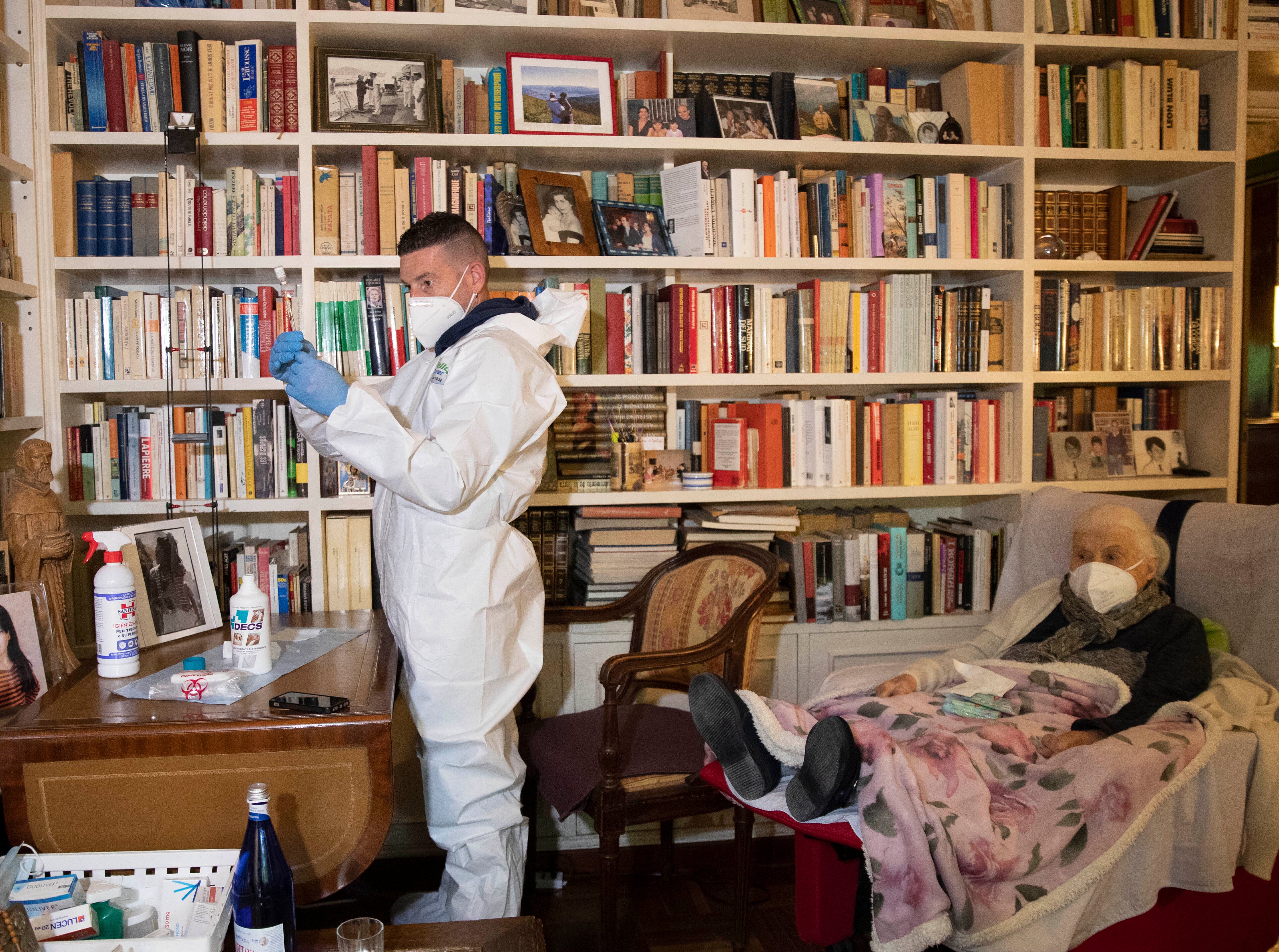AP PHOTOS: Vaccine teams do house calls for Rome's homebound

Your support helps us to tell the story
From reproductive rights to climate change to Big Tech, The Independent is on the ground when the story is developing. Whether it's investigating the financials of Elon Musk's pro-Trump PAC or producing our latest documentary, 'The A Word', which shines a light on the American women fighting for reproductive rights, we know how important it is to parse out the facts from the messaging.
At such a critical moment in US history, we need reporters on the ground. Your donation allows us to keep sending journalists to speak to both sides of the story.
The Independent is trusted by Americans across the entire political spectrum. And unlike many other quality news outlets, we choose not to lock Americans out of our reporting and analysis with paywalls. We believe quality journalism should be available to everyone, paid for by those who can afford it.
Your support makes all the difference.The doctor and nurse manage just 12 shots a day — six in the morning, six in the afternoon — visiting Rome’s home-bound elderly to administer COVID-19 vaccines and, with them, the hope that Italy’s most fragile might soon emerge from the pandemic.
It's a time-consuming but crucial part of the vaccination campaign in Italy which has the world’s second-oldest population and tends to care for its aged at home rather than in institutional facilities.
In the Lazio region around Rome some 30,000 people over age 75 and with conditions that made it impossible for them to get to vaccination centers requested a house call. On Tuesday, a dozen of them got their second dose of Pfizer-BioNTech thanks to Dr. Elisa Riccitelli and nurse Luigi Lauri.
To make sure they hit all their appointments on time — one vial of Pfizer for the morning six, one vial for the afternoon — the local public health center struck a deal with Uber so its visiting vaccination teams could have a dedicated car and driver. The 500 free rides from Uber cut down on time spent finding parking spots in Rome’s notoriously congested streets.
And when they ring a doorbell, they are welcomed inside like heroes.
“It’s really a very nice feeling,” Riccitelli said. “We often vaccinate bedridden patients who cannot move, the extremely elderly, so the feeling is that we’re doing something really useful.”
Italy’s vaccination campaign got off to a slow start due to delivery shortages and logistical hiccups. But the pace is accelerating — to date 18.2 million shots have been administered — and officials hope to reach 500,000 a day, with a goal of vaccinating 80% of the population by September.
Lazio is doing better than many regions, administering just under 2 million shots. Appointments have opened up for people as young as 58 and some 80% of the homebound who made appointments for house calls have received at least one dose, regional officials said.
“I feel amazing, like yesterday and the day before that, amazing,” said 96-year-old Patrizia Cumbo, who has dementia, after she got her shot. She lives with her caregiver and received her jab from the living room recliner where she spends most of her days.
A bedridden Giorgio Tagliacarne, 85, said he hoped his jab would spell the end of a year of isolation, which was particularly acute given he and his wife used to sail for pleasure around the world.
“This way now maybe my grandchildren can come visit me, which until now is something I have avoided,” he said, as his wife sat nearby.
Riccitelli and Lauri take full precautions when they enter each home, donning dedicated protective gear and masks. Riccitelli notes relevant medical data and handles consent forms, while Lauri prepares and administers the vaccine, which they carry in an insulated bag to keep it cold.
Then they wait 15 minutes to ensure there are no adverse reactions, and move onto the next appointment.
“Fortunately we have never seen any side effects,” Riccitelli says. “After 15 minutes we say goodbye with a big smile.”
___
Nicole Winfield contributed.